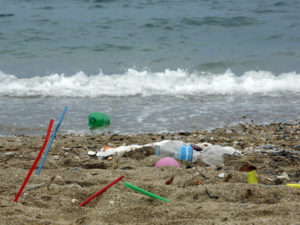Find Out How Much Beef Effects Our Environment, with the Beef FoodPrint! 
The US Beef Industry is the biggest in the world. Beef is still one of the top eaten meats in our world, but it is no longer a healthy option for us, or a healthy option for the environment! The new food advocacy website, FoodPrint, is working to help people understand the impact that their food has on the environment, on animal welfare, on the land, and on us, the consumers! It is important to know how to eat sustainably and be conscious of the issues within our food system. Beef has a huge global footprint that severely impacts the environment, people and the animals themselves.
Most beef production is resource-intensive and imparts a huge toll on the environment. These intensively raised cattle are kept in crowded, unhygienic feedlots and fed an unnatural diet. They produce toxic amounts of methane gas, making them a prime contributor to global warming. They’re slaughtered at speeds that are too fast to ensure safety for workers or to prevent feces from contaminating their meat. This system is bad for cattle, devastating for our environment, dangerous for the workers who process them, and unhealthy for the humans who eat it. Ultimately, we need to reduce our beef consumption immensely, in order to make an impact on all of these factors.
To learn more you can read the full Beef Footprint report.
You can also take a personalized quiz on what your FoodPrint is!
The EPA Is Weighing Allowing Oil Companies to Pump Waste Water in Natural Rivers 
Oil Drillers have been disposing their wastewater thousands of miles deep in the earth, in wells. This worked for many years, but right now a crisis is on the horizon, because the wells are almost filled to capacity. There is also concern about the ecological effects this waste water is having on the land. To solve this issue, the Trump Administration is considering allowing oil companies to pump the waste water into our rivers and streams. Bad idea!! This is contaminated water, and there are no plans in place to make sure that the water can be properly cleaned and treated. This toxic water will effect the natural wildlife and habitat, and can make its way into our drinking water.
The Houston Chronicle reports from an Environmental Defense Fund employee: “It would be so difficult to (treat the wastewater) because there’s so much we don’t know,” said Nichole Saunders, an attorney with the Environmental Defense Fund in Austin. “There’s only a handful of research papers. We don’t have approved testing methods. The complicating factor here is there’s not really the science and data to inform EPA.”
Lobbyists in Washington are proposing they use this treated wastewater to relieve drought-ridden towns in America. This is clearly not a good idea, if the solution of how to clean the water is not figured out. The Trump administration is looking to loosen the bans on this, to help the oil companies out. This will effect everyone because clean drinking water is essential to all humans.
To read the full article you can go here.
The European Parliament Voted to Ban Single Use Plastic on Wednesday!
In a sweeping vote of 571 to 53, the European Parliament voted to ban all single-use plastic items in all establishments, in and effort to help fight plastic pollution in our oceans. This is an exciting and radical ban that is setting an great example for the rest of the world. Before it goes into effect, they must negotiate the terms of how it would be implemented because there is currently no other products in place to replace plastic. The proposal is to ban all single-use plastics, like plastic cutlery, straws, cups, balloons and plates, by 2021.
“We have adopted the most ambitious legislation against single-use plastics. It is up to us now to stay the course in the upcoming negotiations with the Council,” Belgian MEP Frédérique Ries said in a news release. “It is essential in order to protect the marine environment and reduce the costs of environmental damage attributed to plastic pollution in Europe, estimated at 22 billion euros by 2030.”
While many states, and stores individually have put bans on single use plastic in America, we have no laws in place to reduce our plastic use. This needs to change in order to help with the current plastic pollution crisis, and Europe is setting a good example!
To read the whole article click here.


Comments are closed.